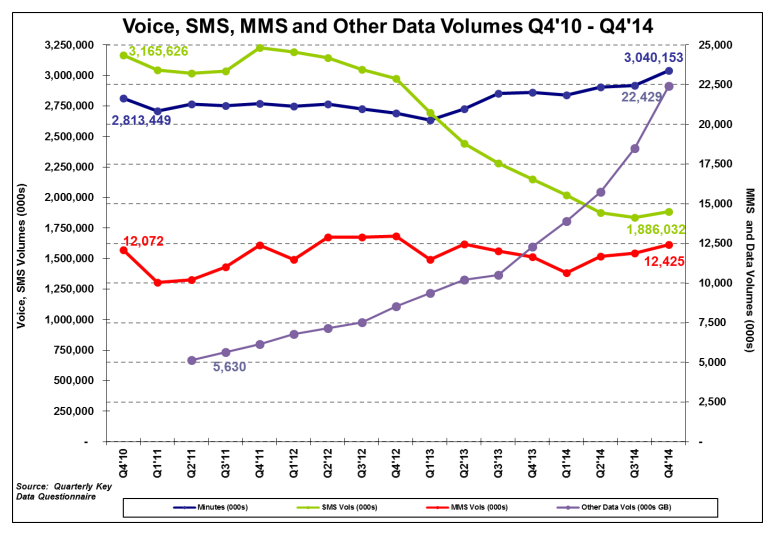Many commentators have noted the rise of messaging applications such as Facebook messenger, Google hangouts, WhatsApp and the granddaddy of them all, Skype – and predicted the demise of SMS. This graph, from Irish regulator COMREG’s Q4 2014 market report, shows it clearly. However, the last two quarters show the decline slowing and even reversing. Future reports will show whether Q4 2014 is a blip or the steep decline of SMS is over.
However, most of us still use SMS every day.
It seems that SMS is here to stay. Why is this? Well, SMS offers some unique advantages:
- SMS is ubiquitous. If your friend has a mobile number, then you know they can receive an SMS. That’s not true of any other messaging application.
- Whereas the OTT messaging apps all require mobile data coverage, SMS doesn’t. There are plenty remote places with coverage but no mobile data.
- SMS works on the poorest mobile signal. In fact, an SMS will often get through where a voice call won’t. In the UK, the emergency services have set up a 999 / 112 SMS service.
- SMS is the communication method of choice for most companies offering 2-factor authentication. The Next Web has a useful article on why SMS is widely used for A2P (Application-to-person) messaging.
These are among the reasons why SMS has a bright future. Sure, usage will continue to decline for a while as messaging apps gain penetration – but SMS is here to stay.
This post first appeared on the Idiro blog.

